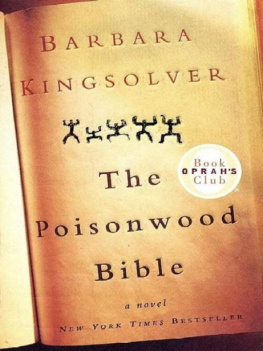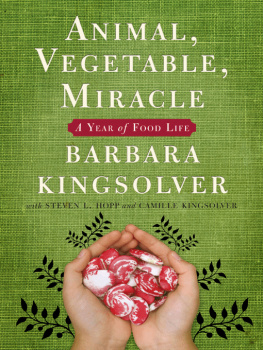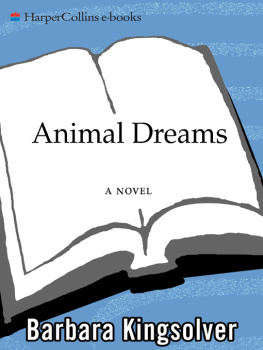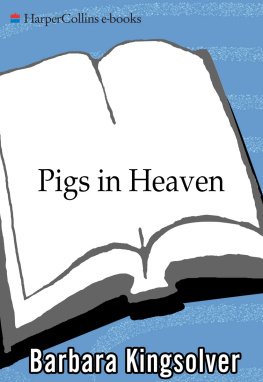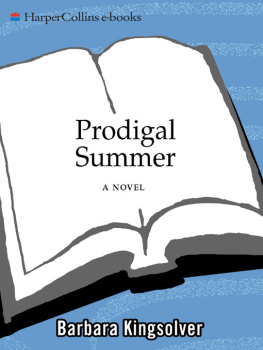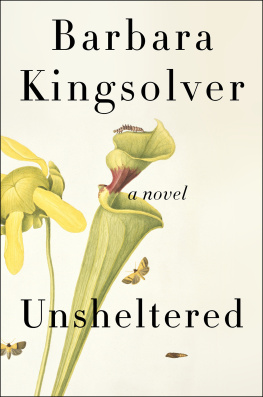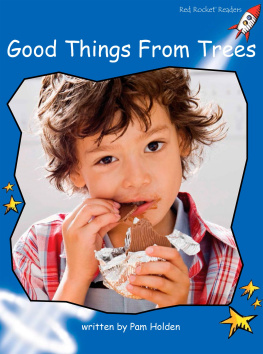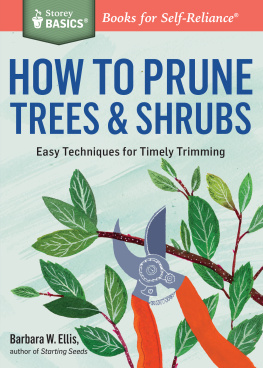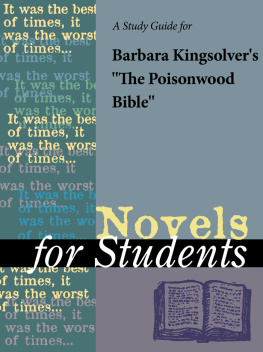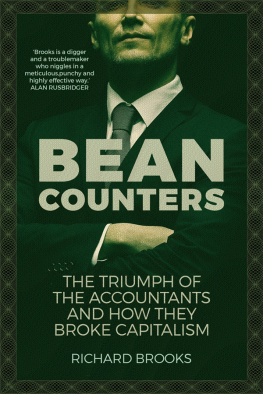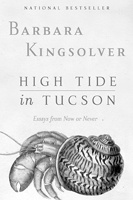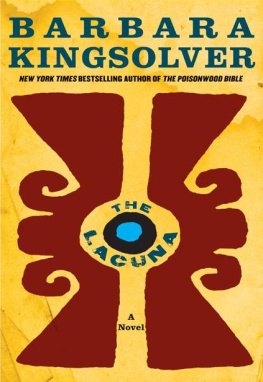Barbara Kingsolver - The Bean Trees
Here you can read online Barbara Kingsolver - The Bean Trees full text of the book (entire story) in english for free. Download pdf and epub, get meaning, cover and reviews about this ebook. year: 2007, publisher: HarperPerennial, genre: Detective and thriller. Description of the work, (preface) as well as reviews are available. Best literature library LitArk.com created for fans of good reading and offers a wide selection of genres:
Romance novel
Science fiction
Adventure
Detective
Science
History
Home and family
Prose
Art
Politics
Computer
Non-fiction
Religion
Business
Children
Humor
Choose a favorite category and find really read worthwhile books. Enjoy immersion in the world of imagination, feel the emotions of the characters or learn something new for yourself, make an fascinating discovery.

- Book:The Bean Trees
- Author:
- Publisher:HarperPerennial
- Genre:
- Year:2007
- Rating:5 / 5
- Favourites:Add to favourites
- Your mark:
- 100
- 1
- 2
- 3
- 4
- 5
The Bean Trees: summary, description and annotation
We offer to read an annotation, description, summary or preface (depends on what the author of the book "The Bean Trees" wrote himself). If you haven't found the necessary information about the book — write in the comments, we will try to find it.
The Bean Trees — read online for free the complete book (whole text) full work
Below is the text of the book, divided by pages. System saving the place of the last page read, allows you to conveniently read the book "The Bean Trees" online for free, without having to search again every time where you left off. Put a bookmark, and you can go to the page where you finished reading at any time.
Font size:
Interval:
Bookmark:
A NOVEL BY

For Ismene,
and all the mothers who have lost her.
I have been afraid of putting air in a tire ever since I saw a tractor tire blow up and throw Newt Hardbines father over the top of the Standard Oil sign. Im not lying. He got stuck up there. About nineteen people congregated during the time it took for Norman Strick to walk up to the Courthouse and blow the whistle for the volunteer fire department. They eventually did come with the ladder and haul him down, and he wasnt dead but lost his hearing and in many other ways was never the same afterward. They said he overfilled the tire.
Newt Hardbine was not my friend, he was just one of the big boys who had failed every grade at least once and so was practically going on twenty in the sixth grade, sitting in the back and flicking little wads of chewed paper into my hair. But the day I saw his daddy up there like some old overalls slung over a fence, I had this feeling about what Newts whole life was going to amount to, and I felt sorry for him. Before that exact moment I dont believe I had given much thought to the future.
My mama said the Hardbines had kids just about as fast as they could fall down the well and drown. This must not have been entirely true, since they were abundant in Pittman County and many survived to adulthood. But that was the general idea.
Which is not to say that we, me and Mama, were any better than Hardbines or had a dime to our name. If you were to look at the two of us, myself and Newt side by side in the sixth grade, you could have pegged us for brother and sister. And for all I ever knew of my own daddy I cant say we werent, except for Mama swearing up and down that he was nobody I knew and was long gone besides. But we were cut out of basically the same mud, I suppose, just two more dirty-kneed kids scrapping to beat hell and trying to land on our feet. You couldnt have said, anyway, which one would stay right where he was, and which would be the one to get away.
Missy was what everyone called me, not that it was my name, but because when I was three supposedly I stamped my foot and told my own mother not to call me Marietta but Miss Marietta, as I had to call all the people including children in the houses where she worked Miss this or Mister that, and so she did from that day forward. Miss Marietta and later on just Missy.
The thing you have to understand is, it was just like Mama to do that. When I was just the littlest kid I would go pond fishing of a Sunday and bring home the boniest mess of blue-gills and maybe a bass the size of your thumb, and the way Mama would carry on you would think Id caught the famous big lunker in Sheps Lake that old men were always chewing their tobacco and thinking about. Thats my big girl bringing home the bacon, she would say, and cook those things and serve them up like Thanksgiving for the two of us.
I loved fishing those old mud-bottomed ponds. Partly because she would be proud of whatever I dragged out, but also I just loved sitting still. You could smell leaves rotting into the cool mud and watch the Jesus bugs walk on the water, their four little feet making dents in the surface but never falling through. And sometimes youd see the big ones, the ones nobody was ever going to hook, slipping away under the water like dark-brown dreams.
By the time I was in high school and got my first job and all the rest, including the whole awful story about Newt Hardbine which I am about to tell you, he was of course not in school anymore. He was setting tobacco alongside his half-crippled daddy and by that time had gotten a girl in trouble, too, so he was married. It was Jolene Shanks and everybody was a little surprised at her, or anyway pretended to be, but not at him. Nobody expected any better of a Hardbine.
But I stayed in school. I was not the smartest or even particularly outstanding but I was there and staying out of trouble and I intended to finish. This is not to say that I was unfamiliar with the back seat of a Chevrolet. I knew the scenery of Greenup Road, which we called Steam-It-Up Road, and I knew what a pecker looked like, and none of these sights had so far inspired me to get hogtied to a future as a tobacco farmers wife. Mama always said barefoot and pregnant was not my style. She knew.
It was in this frame of mind that I made it to my last year of high school without event. Believe me in those days the girls were dropping by the wayside like seeds off a poppyseed bun and you learned to look at every day as a prize. Youd made it that far. By senior year there were maybe two boys to every one of us, and we believed it was our special reward when we got this particular science teacher by the name of Mr. Hughes Walter.
Now him . He came high-railing in there like some blond Paul McCartney, sitting on the desk in his tight jeans and his clean shirt sleeves rolled up just so, with the cuffs turned in. He made our country boys look like the hand-me-down socks Mama brought home, all full of their darns and mends. Hughes Walter was no Kentucky boy. He was from out of state, from some city college up north, which was why, everyone presumed, his name was backwards.
Not that I was moony over him, at least no more than the standard of the day, which was plain to see from the walls of the girls bathroom. You could have painted a barn with all the lipstick that went into H. W. enraptured forever and things of that kind. This is not what I mean. But he changed my life, there is no doubt.
He did this by getting me a job. I had never done anything more interesting for a living than to help Mama with the for-pay ironing on Sundays and look after the brats of the people she cleaned for. Or pick bugs off somebodys bean vines for a penny apiece. But this was a real job at the Pittman County Hospital, which was one of the most important and cleanest places for about a hundred miles. Mr. Walter had a wife, Lynda, whose existence was ignored by at least the female portion of the high school but who was nevertheless alive and well, and was in fact one of the head nurses. She asked Hughes Walter if there was some kid in his classes that could do odd jobs down there after school and on Saturdays, and after graduation maybe it could work out to be a full-time thing, and he put the question to us just like that.
Surely youd think he would have picked one of the Candy Stripers, town girls with money for the pink-and-white uniforms and prissing around the bedpans on Saturdays like it was the holiest substance on Gods green earth theyd been trusted to carry. Surely you would think hed pick Earl Wickentot, who could dissect an earthworm without fear. That is what I told Mama on the back porch. Mama in her armhole apron in the caned porch chair and me on the stepstool, the two of us shelling out peas into a newspaper.
Earl Wickentot my hind foot is what Mama said. Girl, Ive seen you eat a worm whole when you were five. Hes no better than you are, and none of them Candy Stripers either. Still, I believed thats who he would choose, and I told her so.
She went to the edge of the porch and shook a handful of pea hulls out of her apron onto the flowerbed. It was marigolds and Hot Tamale cosmos. Both Mama and I went in for bright colors. It was a family trait. At school it was a piece of cake to pick me out of a lineup of town girls in their beige or pink Bobbie Brooks matching sweater-and-skirt outfits. Medgar Biddle, who was once my boyfriend for three weeks including the homecoming dance, used to say that I dressed like an eye test. I suppose he meant the type they give you when you go into the army, to see if youre color blind, not the type that starts with the big E. He said it when we were breaking up, but I was actually kind of flattered. I had decided early on that if I couldnt dress elegant, Id dress memorable.
Font size:
Interval:
Bookmark:
Similar books «The Bean Trees»
Look at similar books to The Bean Trees. We have selected literature similar in name and meaning in the hope of providing readers with more options to find new, interesting, not yet read works.
Discussion, reviews of the book The Bean Trees and just readers' own opinions. Leave your comments, write what you think about the work, its meaning or the main characters. Specify what exactly you liked and what you didn't like, and why you think so.

